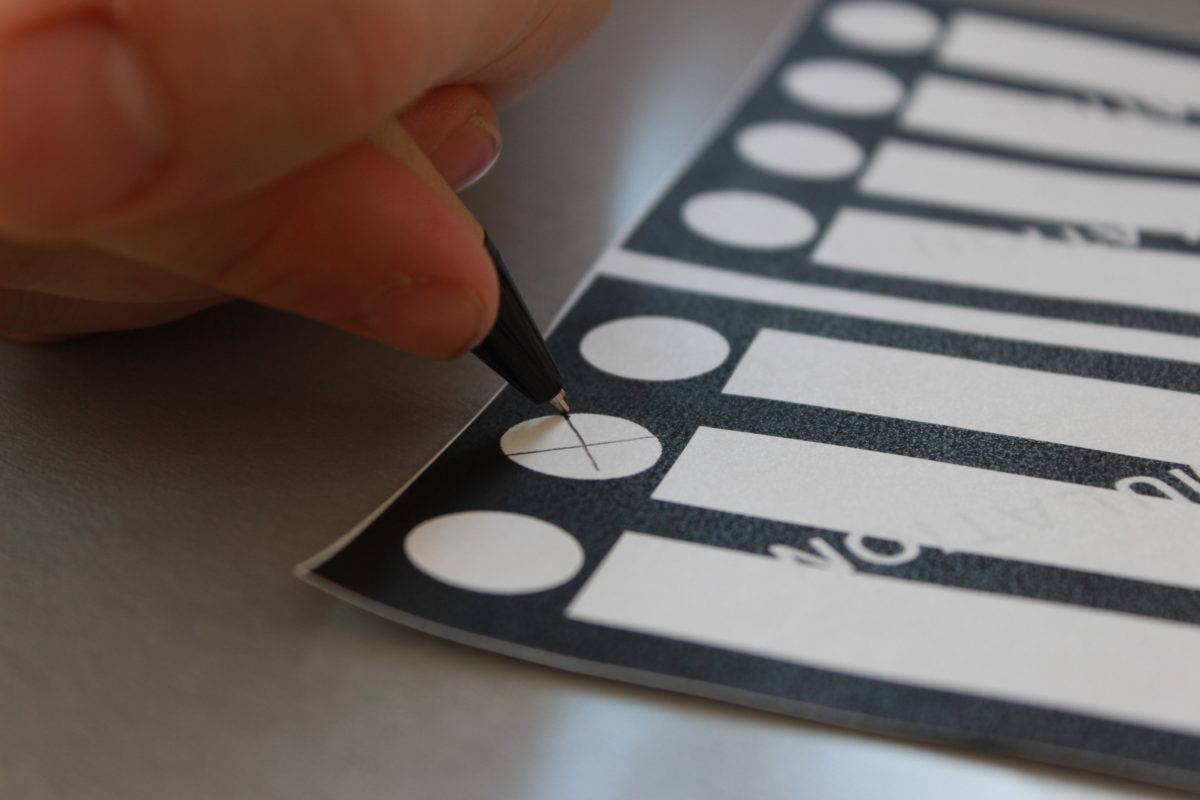Green Party leader David Coon thinks New Brunswick youth would be more politically engaged if they had the chance to vote.

Coon tabled a bill on Dec. 18, 2014 to amend the Elections Act and lower New Brunswick’s legal voting age from 18 to 16 years of age. This is his first bill since he was elected as the MLA for Fredericton South on Sept. 22, 2014 and became the first-ever Green MLA in the province.
“It’s essential to do this if youth are going to have a voice in this province,” he said.
Voter turnout fell to 65.4 per cent in the 2014 provincial election – a 4.2 per cent decrease from 2010.
“If the question is how to get more engagement, more public relations campaigns directed at 18 to 25-year-olds are ineffective,” said Coon. “But people reaching the voting age at 16 does make a difference.”
Coon said many students aged 16 and 17 hold part-time jobs and, therefore, pay taxes.
“They drive and pay taxes on their gasoline, but have no vote,” he said. “So what’s with that?”
Coon said Austria and Brazil have dropped their voting ages to 16, and 16 and 17-year-olds could cast ballots in the Scottish independence referendum on Sept. 18, 2014.
“In Scotland, the government thought 16 and 17-year-olds should be part of this important decision about whether to separate from Great Britain or not,” he said.
But St. Thomas political science professor Tom Bateman compared the use of success stories from areas with lower voting ages in Canadian electoral politics to trying to jam a square peg into a round hole.
“Experience with different methods in other parts of the world doesn’t always apply to Canada,” he said.
Third-year political science student Brandon Flynn, who is studying in Sweden this semester, says reducing the voting age would be an effective way to encourage interest in politics at a younger age.
“Why would a 16 year old care about politics if they’re not provided the most important venue to change it?”
However, Bateman expects a lower voting age would lead to more people making less informed decisions at the polls.
“It impairs the principle that voting should be done by informed, mature people,” he said. “Voting is phrased as a right, not an obligation, and youth see it as a right and a way to assert their interests.”
Both Coon and Flynn said civic engagement is emphasized in middle and high schools. Coon said many teens who weren’t yet eligible to vote expressed support for his party during the election campaign.
But Bateman wonders if lessons taught in grade school mock elections will be used later in life.
“The message in school is that students are casting votes as part of a course rather than as citizens.”
Coon expects his bill will be debated in late March or early April, but if it doesn’t pass or become law, Coon says the government will have a lot of explaining to do about why they’re leaving youth behind.
“Comments on news stories I’ve seen online against this move look a lot like the opposition to giving women the vote in the early 1900s.”
